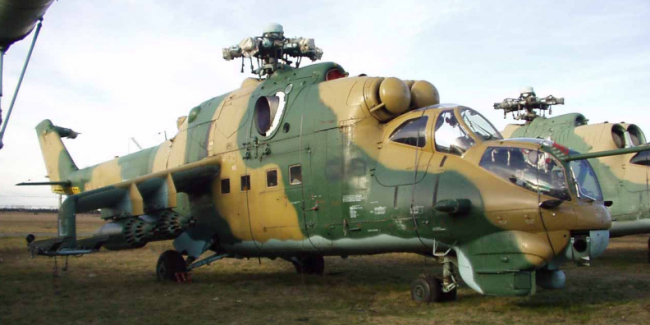Radio Erena: 28 October 2019

More than 35 African heads of states and governments attended the Russian-African Economic Forum in the Black Sea resort of Sochi on the 23-24 October.
In a hasty attempt to catch up with both China and Turkey which held their summits with African leaders last year, Russian President Vladimir Putin invited the African leaders to the first-ever Russian African economic forum. An African journalist in Paris wondered: “what has Russia got to offer to Africa other than arms?”. Putin confirmed that this forum will boost cooperation in various economic sectors, according to him, Russia promises to invest in infrastructure, mining, and energy sectors in the continent. Russian universities will receive more students from Africa to study science and technology and finally, Russia will fight epidemics in Africa.
What first appeared was a resonance of what the Paris Journalist sarcastically noted: more arms’ deals at the margin of the summit. Russian presidential advisor Anton Kobyakov said that the amount of 12 Billion arms deals were reached at the margins of the 35 official-level and the 1500 other meetings.
Niger, among the poorest African countries, confirmed that it will buy 12 modern MI 35 choppers to fight Boko Haram. Sudan, yet recovering from the rule of former Russia’s ally, General Bashir, is seeking Russian technical help to rehaul its air force. For decades, African countries have been good clients of Russian arms; but they still rank second to Asian countries as it is confirmed by Stockholm International Peace Research Institute (SIPRI), yet, the Russian don’t give up on Africa.
Even the poorest countries of the continent have a high demand for Russian arms. In March 2018, the Ukrainian prosecutor general declared that his country’s authorities confiscated 36 surface-to-air missiles (Sam’s) in the port city of Mykolaiv, the consignment was destined to Eritrea from Russia.
The Asmara Russia Highway
In the years 2009-11, Eritrea solicited Russia’s diplomatic support in the security council to lift the United Nations’ imposed sanctions on her. Eritrea had to support Russia blindly to desperately gain its support. In June 2014, Eritrea’s foreign minister Mr. Osman Saleh and the presidential advisor Mr. Yemane Gebreab have visited Crimea, the highly contested region between Russia and Ukraine. The Russian arranged visit provoked Ukraine’s anger which swiftly called Eritrea to “ strictly respect territorial integrity and sovereignty of Ukraine and to comply with International law.”
Russia maliciously exploited Eritrea’s dire situation and, in a quid pro quo move, Sergey Lavrov, the Russian foreign minister said his country will establish a logistical center on Eritrea’s Red Seaport. This move was endorsed by the Eritrean foreign minister during his visit to Moscow in January 2017.
In Africa News Site’s list of heads of states and governments attending Sochi Summit, Eritrea’s foreign minister Mr. Osman Saleh, at the bottom of the list, was the only foreign minister to head his country’s delegation to the Summit! Where was the Eritrean president Isaias Afewerki?
President Isaias Afewerki, or PIA, is usually referred to him by his fellow citizens has been absent from all summits: UN General Assembly’s meeting, almost all meetings of the African Union, the Joint European-African summits and the Chinese and Africa Summits. Eritrea’s president’s absence was mainly due to the tight diplomatic isolation since 2009, also due to the coldness he internationally receives as one of Africa’s harshest dictators in these meetings; as many leaders would consider his presence as a disgraceful diplomatic embarrassment. Now, a year after the Ethio-Eritrean peace agreement, the Eritrean diplomacy is still suffering from isolation at its highest levels.
PIA’s frequent stations are Khartoum, Riyadh, and Dubai. Out of these capitals, all diplomatic shuttles are led by the foreign minister and the presidential advisor who follows the foreign minister like his shadow.
With the continued absence of its president, the Eritrean government misses the chances of reflecting its views in regional and international matters, misses also the chance of face-to-face meetings with world leaders and finally misses the economic gains at the margins of the missed summits.
By Fathi Osman
=============
